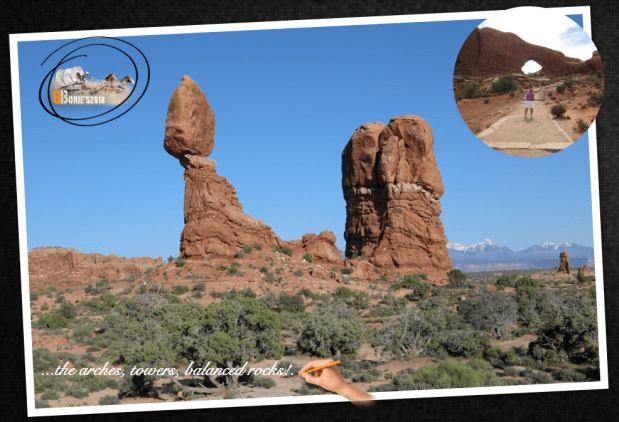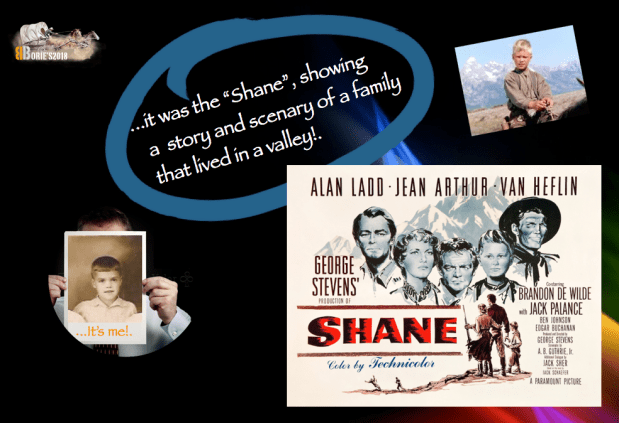…o “Marafado”!. (the “Marafado”)!
…quando nos encontramos num cenário de guerra, podemos ser feridos de maneira a que as cicatrizes, não sejam visíveis na vida real!. Algumas dessas feridas, as mais profundas, podem ser infligidas, sem deixar um único arranhão e, nós como veteranos de combate, passámos por algumas das experiências de vida, mais traumáticas que qualquer outro ser humano possa imaginar!. (when we are in a war scenario, we can be hurt so that the scars are not visible in real life! Some of these deeper wounds can be inflicted without leaving a single scratch and, as veterans of combat, we go through some of the life-experiences, more tragic than any other human being can imagine)!.
…o seu nome de guerra era “o Marafado”, porque cantava uns fados, de tal maneira desafinados, que quase não se podiam ouvir, bebia vinho e fumava cigarros “Três Vintes”, era pequeno na estatura e moreno, talvez por andar sempre nú da cintura para cima!. Era oriundo da província do Algarve, em Portugal, onde em novo tinha andado com o seu pai e o seu irmão “ao mar”, a expressão “ao mar”, na boca do povo era, que andava à pesca no oceano!. (his war name was o “Marafado”, because he sang “fados” (luck, destiny), so out of tune that they could hardly hear each other, drank wine and smoked “Tres Vintes” cigarettes, was small in stature and dark, perhaps always walk naked from the waist up!. He was from the Algarve province of Portugal, where he had once again walked with his father and brother “to the sea”, the words “to the sea”, in the mouths of the people, who were fishing in the ocean)!
…uns dias pescavam muito peixe, outros dias não pescavam quase nada, mas isso não era lá muito importante, pois no fim do dia, continuavam a beber na taverna do “Manhoso”, onde se houvesse dinheiro pagavam, oferecendo uma bebida ao próprio “Manhoso”, se não houvesse dinheiro, mandavam apontar no “Livro”!. No verão, quando um Circo visitava a sua vila, ia ajudar a montar todo aquele material que envolvia o Circo, ficava por ali, gostavam dele, pois era uma espécie de comunicador entre a população da vila e o pessoal do Circo, onde lhe ensinavam algumas habilidades e truques mágicos, com que no aquartelamento, nos diliciava a nós, seus companheiros!. (Some days they caught a lot of fish, other days they caught almost nothing, but this was not very important, because at the end of the day they continued to drink in the “Manhoso” (Sly) tavern, where there was money they paid, offering a drink to the himself “Manhoso”, if there were no money, they had the “Book” pointed out! In the summer, when a circus visited his village, he was going to help assemble all the material that surrounded the Circus, he was there, they liked him, because he was a kind of communicator between the village people and the Circus people, where they taught him some magic skills and tricks, with which, in the barracks, he gave us his companions!
…a guerra está tão perto do inferno no planeta Terra onde vivemos, como qualquer ser humano que felizmente nunca a viveu, nunca poderia imaginar!. Nós os veteranos, pagamos um preço muito elevado para servir o nosso país, sofremos e continuamos a sofrer o resto dos nossos dias, o veterano de guerra, não escolheu a sua guerra, a guerra é que o escolheu a ele e, nem todas as guerras são justas, aliás nenhuma é justa, mas as vítimas emocionais das guerras equivocadas, são as mais difíceis de suportar!. (war is so close to hell on planet Earth, where we live, as any human being who has happily ever lived it, could never have imagined!. We veterans, we pay a very high price to serve our country, we suffer and we continue to suffer the rest of our days, the war veteran did not choose his war, the war is that he chose him and not all wars are just, and neither is fair, but the emotional victims of the wrong wars are the hardest to bear)!.
…o “Marafado”, era um comunicador e tinha alguma alegria, mas depois da cena que presenciou, com a morte de uns guerrilheiros feitos prisioneiros, que depois de mortos, ele e nós, que éramos o “Cifra” em cenário de guerra, sempre ficámos com a ideia de que esses martirizados prisioneiros, depois de mortos foram queimados e enterrados numa vala, ali mesmo, ao lado do aquartelamento!. (the “Marafado”, was a communicator and had some joy, but after the scene that he witnessed, with the death of guerrillas taken prisoners, that after dead, he and us, who were the “Cipher” in scenario of war, we always had the idea that these martyred prisoners, after being killed, were burned and buried in a ditch, right there, next to the barracks)!.
…a partir desse momento, o combatente “Marafado”, nunca foi a mesma pessoa, cumpria as suas tarefas em combate, nos tempos livres nunca largava o seu rádio portátil, falava quando necessário, evitava os contactos e conversas, vivia no seu mundo de silêncio e, alguns companheiros, diziam:
– o “Marafado”, já está apanhado pelo clima!.
(From that moment, the combatant “Marafado”, was never the same person, he fulfilled his tasks in combat, in the free time he never gave up his portable radio, he spoke when necessary, he avoided the contacts and conversations, he lived in his world of silence, and some companions said:
– The “Marafado”, is already caught by the weather)!.
…apanhado pelo clima, na linguagem local queria dizer mais ou menos, que já estava apanhado pelo stress de guerra, já tinha sido exposto a eventos traumáticos que ameaçavam a vida humana, acontecimentos que nos levam a lugares onde nenhum corpo, nenhuma mente ou nenhuma alma, jamais deviam visitar!. Tinha vivido uma jornada para lugares escuros da vida, do terror, do mêdo, da dor, da morte, das feridas, da perda, do sofrimento, do desespero e da desesperança, estando traumatizado fisicamente, emocionalmente e espiritualmente!. (caught up in the climate, in the local language it meant more or less, already caught up in the stress of war, had already been exposed to traumatic events that threatened human life, events that lead us to places where no body, no mind or no soul, should ever visit!. He had lived a journey into dark places of life, terror, fear, pain, death, wounds, loss, suffering, despair and hopelessness, being physically, emotionally, and spiritually traumatized)!.
…alguns de nós, lidam com a exposição ao inferno melhor que outros, mas com toda a certeza que não estou a falar dos combatentes que estiveram no maldito cenário de guerra, combatendo os guerrilheiros que queriam a independência do seu território, lutando pela sua liberdade, onde o país Portugal se envolveu, na sua Guerra Colonial e, manteve em África, onde o combatente “Cifra”, sabia e compreendia o silêncio do combatente “Marafado”, mas sempre respeitou a sua atitude!. (some of us deal with the exposure to hell better than others, but I’m certainly not talking about the fighters who were in the damn war scene, fighting the guerrillas who wanted the independence of their territory, fighting for his freedom, where the country Portugal became involved in its Colonial War, and maintained in Africa, where the combatant “Cipher”, knew and understood the silence of the combatant “Marafado”, but always respected his attitude)!.
…algumas vezes, o companheiro “Marafado”, em conversa com nós, dizia:
– não sou pessoa de estar aqui preso, não sou pássaro de gaiola, preciso de ver o mar, fui pescador, isto está a matar-me aos poucos, o silêncio faz-me algum bem, pois fecho os meus olhos e, penso na praia e no mar azul que deixei!. Quando vou para o mato em patrulha, para mim às vezes é bom, vejo a água dos rios e bolanhas (pântanos), o verde das matas, estou aos poucos a odiar isto e também Portugal!. Assim que regressar, se regressar, vou fugir, vou emigrar!.
(Sometimes, the companion “Marafado”, in conversation with us, said:
– I am not a person to be in prison, I am not a cage bird, I need to see the sea, I was a fisherman, this is killing me slowly, the silence does me some good, because I close my eyes and, beach and the blue sea that I left!. When I go to the forest on patrol, sometimes it is good for me, I see the water of the rivers and bolanhas (marshes), the green of the woods, I am slowly hating this and also Portugal!. As soon as I return, if I return, I will flee, I will emigrate)!.
…todas estas palavras eram pronunciadas com convicção de quem sabe o que quer, eram directas, não admitiam argumentos, terminando quase sempre dizendo:
– não falo, quem me proibiu de falar foi o nosso país Portugal, ao matar aqueles desgraçados, ali, a sangue frio, durante aqueles terríveis e sangrentos interrogatórios!. Só tu e eu é que sabemos a verdade!.
(All these words were pronounced with conviction of who knows what they want, were direct, did not admit arguments, ending almost always saying:
– I do not speak, who forbade me to speak it was our country, Portugal, when I killed those bastards, there, in cold blood, during those terrible and bloody interrogations!” Only you and I know the truth)!.
…muitas vezes questionou-nos, a nós, o “Cifra”, se conhecíamos algum contacto para fugir, “ir no Mato”, que na linguagem combatente era, passar para fora da província, desertar, conseguir chegar ao norte do continente africano e depois, passar para a Europa, o que nós sempre lhe dissémos para tentar sobreviver, que com quase toda a certeza iria regressar a Portugal!. (often asked us, the “Cipher”, if we knew any contact to escape, “to go in the Mato”, that in the combatant language was, to pass out of the province, to desert, to get to the north of the continent African and then move to Europe, which we always told him to try to survive, that almost certainly would return to Portugal)!.
…mais tarde, já na diáspora, encontrámo-lo, com ele e sua família convivemos, pelo tempo em que vivemos na mesma cidade, guardámos a sua história, que iremos contar um dia, a história de mais um emigrante que abandonou o sol de Portugal, à beira mar plantado, para vir para o frio, à aventura, sózinho, na procura de um futuro que lhe desse algum bem-estar e, o fizesse esquecer a Guerra Colonial, a África, com chão de terra vermelha, que nunca esquecemos e, continuamos a trazer dentro de nós!. (Later, in the diaspora, we met him, with him and his family, we lived together in the same city, we saved his story, which we will tell one day, the story of another emigrant who left the sun of Portugal, on the seafront planted, to come to the cold, to adventure, alone, in search of a future that would give him some well-being and make him forget the Colonial War, Africa, with red earth soil, which we never forget and we continue to bring within us)!.
Tony Borie, February 2018.






































































































































































